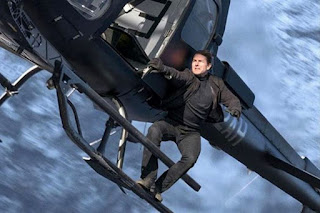Another round of reading: "At the Fights" and other notes
Like most of you, I have been trying to find ways to fill the days. There has been work, still, as I struggle to teach online, and the bride wrangles church work.We've been catching up on home projects, or starting new ones. Yesterday I put together new porch furniture we ordered -- although it won't be going outside until after an expected windstorm has passed. We have posters to put up in one of the rooms, and may have figured out the wall arrangement; we're one frame order away from getting that done. I reconfigured some things on the walls in my room. There has been TV watching -- Little Fires Everywhere, the completely nutty season premiere of The Good Fight, a slow binge through Rizzoli and Isles (easy to kill time when the brain demands little, but not something that I feel guilty about watching) and, recently, a march through the Fast and the Furious movies, seeing the transition from a movie that took itself seriously to one that saw amusement in its core to the ludicrous but entertaining Big Stunts. (And yes, we are honoring the revisionist ordering, having watched 1, 2 and 4 and saved 3 to follow 5 and 6.)
But one can stare at a computer only so long, so reading has been on the agenda: besides books I mentioned in an earlier post, I've revisited vintage Ross Macdonald (Blue City, not his best but stronger in the second half than the first) and relished Chris Drabick's solid, new The Way We Get By, which besides being a rich set of stories has about as perfect a title for these times as you're likely to find. And then, having been sent a Library of America coupon along with a notice of its latest sale, I acquired the books pictured above. If that's not enough to get me through the pandemic, I don't know what will,
In addition to the Harlem Renaissance novels, that batch includes three anthologies, enabling me to pick up and choose which pieces to read as time permits -- although I tend to get linear about such ventures and so, having started with At the Fights, am moving through it in its chronological order starting with Jack London writing about Jack Johnson and onward. I am not quite a third of the way through, to where James Baldwin is talking about Floyd Patterson.
I haven't followed boxing in a long time, although I like boxing movies and have had momentary encounters with the real thing: besides watching fights on regular TV, I remember going to a theater to watch Marvin Hagler beat Roberto Duran, sharing the pay-per-view cost with some friends to see Hagler against Sugar Ray Leonard (and to this day I believe that by any reasonable standard Hagler won that fight), and having lived in the same area as young Mike Tyson (whom I saw in the local airport, and whose PBS station presented a documentary about Cus D'Amato). Enough connection, then, to be drawn to the accounts in this book.
Only, besides the accounts of the fights, what keeps me going in the book is the snap of the language, the shape it gave to other writers. Turn to W.C. Heinz's "Brownsville Bum," from 1951, and you see that Jimmy Breslin called it the greatest magazine sports story he ever read -- and you see in it cadences and phrasing that Breslin would make his own. And phrases constantly leap off the pages, as when Irvin S. Cobb referred to fighter "being hammered to a sanguinary Spanish omelet," The great Red Smith, whose collections I have carried from home to home, said "the greatest novel ever written in one sentence" was this by John Lardner:
"Stanley Ketchel was twenty-four years old when he was fatally shot in the back by the common-law husband of the lady who was cooking his breakfast."
It hardly ends there in Lardner's "Down Great Purple Valleys," where the writer says of Ketchel's exaggerations of a colorful life: "He couldn't resist stringing his saga with tinsel." There's also the guy who was "a part-time playwright ... and a full-time deadbeat."Leaping decades further, you find Baldwin describing a crowd with "improbable-looking women ... who didn't seem, really, to walk or talk, but rather to gleam, click and glide, with an almost soundless meshing of gears."
I could go on. I have avoided underlining or making marginal notes since this is a new book. (Maybe later.) I have been making mental note, and flipping back pages to make sure to store the good stuff.
Not that it's all good: Bob Considine is labored, Jimmy Cannon forces an idea to do more than it can, and racism is unavoidable in the observations from bygone eras.Still, many of the writers, many times, crackle. I keep reading, with the promise ahead of more benefits. And more books lurking after this.



Comments
Post a Comment